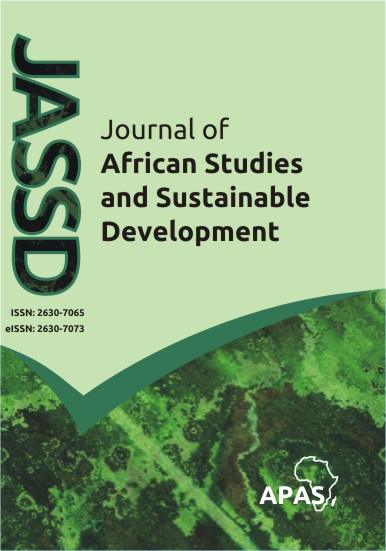 Journal of African Studies and Sustainable Development (JASSD) (Vol. 8 No. 1, 2025)
UBUNTU: AFRICA AND THE BLACK TAX ECONOMY, A POST-COLONIAL NIGERIA EXPERIENCE
Journal of African Studies and Sustainable Development (JASSD) (Vol. 8 No. 1, 2025)
UBUNTU: AFRICA AND THE BLACK TAX ECONOMY, A POST-COLONIAL NIGERIA EXPERIENCE
ABSTRACT
This paper examines the intersection of Ubuntu, Black Tax, and Nigeria's post-colonial economy. It analyzes how communal financial obligations shape economic mobility, wealth distribution, and intergenerational dependency. Rooted in the African philosophy of Ubuntu—which emphasizes collective welfare over individual prosperity—Black Tax has historically served as an informal mechanism of wealth redistribution, compensating for weak social welfare structures. However, in contemporary Nigeria, where economic volatility, high youth unemployment, and rising living costs define the financial landscape, Black Tax has emerged as both a mechanism of social resilience and a constraint on upward mobility. Drawing from historical analysis, socio-economic reality, and contemporary lived experiences, this study situates Black Tax within the broader discourse on post colonial economic structures and the enduring legacy of structural inequalities. It interrogates the ways in which Black Tax reflects pre-colonial communal traditions and post-colonial economic uncertainty, highlighting itsdual role as a source of financial security and a barrier to wealth accumulation. While proponents argue that Black Tax fosters economic solidarity and familial upliftment, critics contend that its unregulated nature perpetuates intergenerational financial stagnation, limiting the economic autonomy of young professionals. This study further explores the sustainability of Black Tax in Nigeria's evolving economy, highlighting its potential to alleviate short-term financial distress while posing risks of long-term economic dependency. Findings emphasize the need for structured adaptation through financial literacy, cooperative investment models, and policy-driven wealth redistribution. By situating Black Tax within post-colonial economic transitions, the paper contributes to discussions on Africa's informal economies and communal financial obligations. Ultimately, it posits that if restructured, Black Tax can shift from a financial burden to a sustainable tool for intergenerational wealth empowerment, preserving communal values while enhancing economic resilience in Nigeria.

